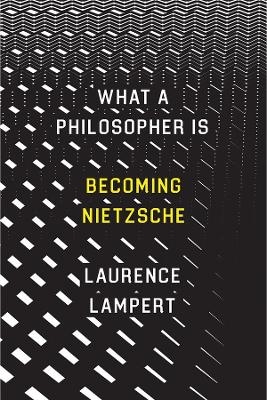
What a Philosopher Is
University of Chicago Press (Verlag)
978-0-226-76043-8 (ISBN)
With this book, Laurence Lampert answers that question. He does so through his trademark technique of close readings of key works in Nietzsche’s journey to philosophy: The Birth of Tragedy, Schopenhauer as Educator, Richard Wagner in Bayreuth, Human All Too Human, and “Sanctus Januarius,” the final book of the 1882 Gay Science. Relying partly on how Nietzsche himself characterized his books in his many autobiographical guides to the trajectory of his thought, Lampert sets each in the context of Nietzsche’s writings as a whole, and looks at how they individually treat the question of what a philosopher is. Indispensable to his conclusions are the workbooks in which Nietzsche first recorded his advances, especially the 1881 workbook which shows him gradually gaining insights into the two foundations of his mature thinking. The result is the most complete picture we’ve had yet of the philosopher’s development, one that gives us a Promethean Nietzsche, gaining knowledge even as he was expanding his thought to create new worlds.
Laurence Lampert is emeritus professor of philosophy at Indiana University–Purdue University Indianapolis and the author of three previous books on Nietzsche as well as Leo Strauss and Nietzsche, How Philosophy Became Socratic, and The Enduring Importance of Leo Strauss, also published by the University of Chicago Press.
Abbreviations
Introduction
Part 1. Young Nietzsche in the Service of Schopenhauer and Wagner
Chapter 1. The Birth of Tragedy: Prometheus the Knowing Maker of Culture
Chapter 2. Backgrounds of Schopenhauer as Educator
Chapter 3. What a Philosopher Is: Schopenhauer as Educator
Chapter 4. What an Artist Is: Richard Wagner in Bayreuth
Part 2. A New Public Nietzsche: Enlightenment Optimist
Chapter 5. Backgrounds of Things Human All Too Human
Chapter 6. The Philosopher as Free-Minded Enlightenment Optimist
Chapter 7. An Enlightenment Optimist’s View of the Future of Morality, Religion, and Art
Chapter 8. An Enlightenment Optimist’s View of the Transformation of Culture
Part 3. Nietzsche Enters His Mature Philosophy
Chapter 9. “Sanctus Januarius”: The First Work of Nietzsche’s Maturity
Chapter 10. The Opening of “Sanctus Januarius”
Chapter 11. The Center of “Sanctus Januarius”
Chapter 12. Backgrounds to the Center of “Sanctus Januarius”
Chapter 13. The Ending of “Sanctus Januarius”
Chapter 14. Backgrounds to the Ending of “Sanctus Januarius”
Conclusion. The Philosophy and Art of Nietzsche’s Maturity
Works Cited
Index
| Erscheinungsdatum | 03.02.2021 |
|---|---|
| Sprache | englisch |
| Maße | 152 x 229 mm |
| Gewicht | 481 g |
| Themenwelt | Sonstiges ► Geschenkbücher |
| Geisteswissenschaften ► Philosophie | |
| ISBN-10 | 0-226-76043-X / 022676043X |
| ISBN-13 | 978-0-226-76043-8 / 9780226760438 |
| Zustand | Neuware |
| Haben Sie eine Frage zum Produkt? |
aus dem Bereich


